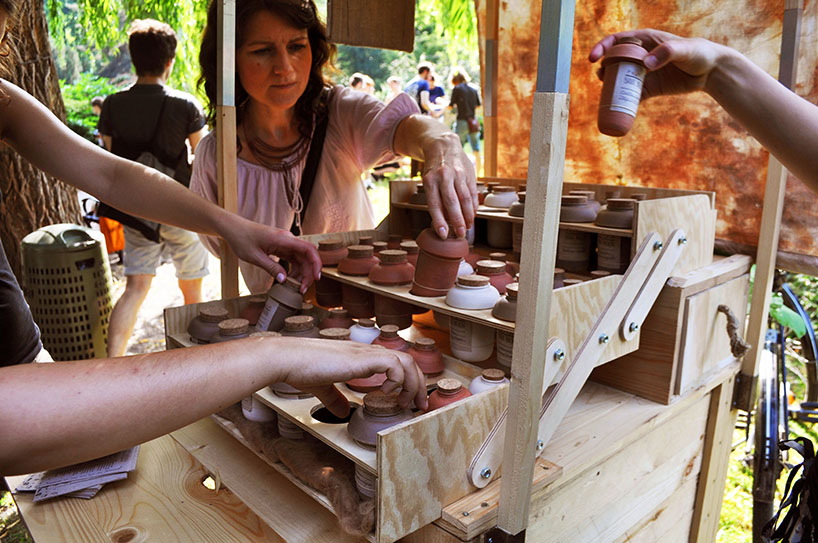
Saving the Seeds by Cristiana S from
designer's own words:
About 100 years ago our food crops were represented by more than 1500 plant types. Today that number has dwindled to around 30 with wheat, rice, corn and soybeans providing the bulk of our food crops. Our rich food heritage that was been developed for millennia has been 90% lost, all but forgotten in industrial agriculture’s race for productivity. Today there are being discussed laws that forbid the free sharing and use of seeds; there are being made patents on life; seeds are being genetically modified so that they can supposedly produce better crops while giving us bad quality food and sterile seeds; pesticides and fertilizers are making our crops and soil dependent on it – all this (and more) is giving to the hand of big corporations the control of our seeds and food system. This is not only a risk to our food sovereignty, as it has proved to be unhealthy for us and the environment, as it endangers the natural crop cycles and varieties, risking our biodiversity.
Diversity is what makes our food systems resilient when it comes to threats like insects, disease and extremes in weather. Diversity is what makes our food system strong, it’s what make our dish full with nutrition, value and taste. Diversity is the key for balance in nature. It’s our task, as citizens, to be responsible for the respect and preservation of it, to be responsible for what we put in our plates. This can be achieved if we save our biodiversity by saving seeds, if we go back to feed the world through local farming and home gardening, if we will honor our local heritage flora, taking the action of growing and eating as sacred and not as a business – because our health and the health of Earth is more important than that.
Bank Nasion is a community based project that focus on the collection and free sharing of seeds, with the intension of creating awareness on plant diversity, loss of genetic flora heritage, seed production and its cultural legacy. I was freely collecting seeds from local polish gardeners and farmers that have been saving it from their crops along generations, with no chemicals or genetic modification. The mobile Bank Nasion (translated into “bank of seeds”) was traveling through Rodzinny Ogrod Dzialkowy (urban gardens in Wroclaw, Poland) to freely share these gathered seeds, while inspiring people to start to save their own, get more resilient, sustainable and make our network bigger.
The project is not about corporate seed control, or engineering food plants to terminate, or disturb the vital force of renewability of seeds. Surely is is more about empowering people and to share our skills and knowledge to make sure our freedom and right to seeds is not threatened or blocked. Sharing this project is inspiring people to join the task of fighting for our rights and the rights of nature. This is a prototype, an example of communal work, of sharing, of cooperation.
You can be part of the worldwide effort to conserve seed varieties before they are lost forever by growing your own plants, letting them seed, collect them, save them and share them with other gardeners. Bank of seeds can be individual collections or communal organizations. Communal banks of seeds are collectives where pure seeds (old varieties with no chemicals, non-hybrid, non- GMO) are gathered from different farmers and storage in a common place where everyone has free access to them. They bring a much wider approach to it, as it’s a growing network – each year there is more quantity, diversity, better quality, while safeguarding the seeds against crop failure, inspiring more people to join the effort.
The design consists in a wood and metal trolley connected with a bicycle that makes it possible for the wood cabinet of seeds to travel through the urban gardens. There were developed ceramic jars which guarantee the safeness and vitality of seeds (two sizes, three colors, which help organize the seed by size and type of plant), while travelling down the road or while waiting to be sowed. These jars are airtight, which makes the quality of seed safe for years (depending on the kind of seed). The labels in the jars names the plant, the person who donated them and, when known, the year of gathering and some tips about it. The materials used were natural and, when possible, recycled. The manufacture of the jars was made through plaster molds which were filled with stoneware ceramic (red and white), which than was glazed inside to provide completely waterproof and airtight atmosphere. The wood trolley was entirely done by hand, recycling pallets from a construction site.
Sharing seeds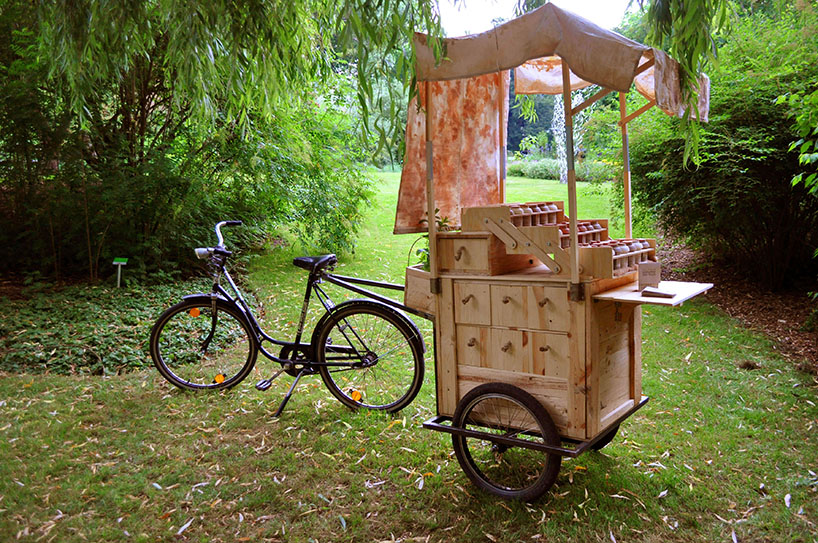
Wood trolley and cabinet of seeds
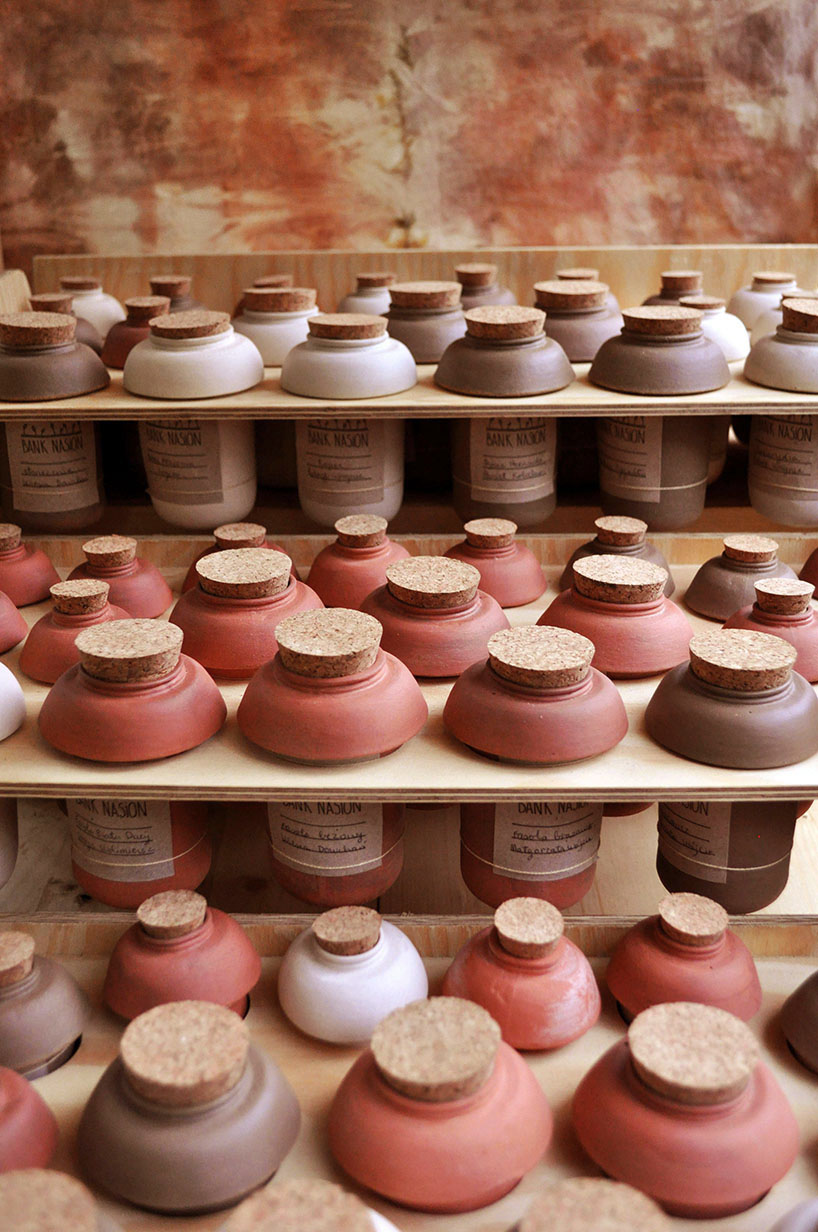
Cabinet of Seeds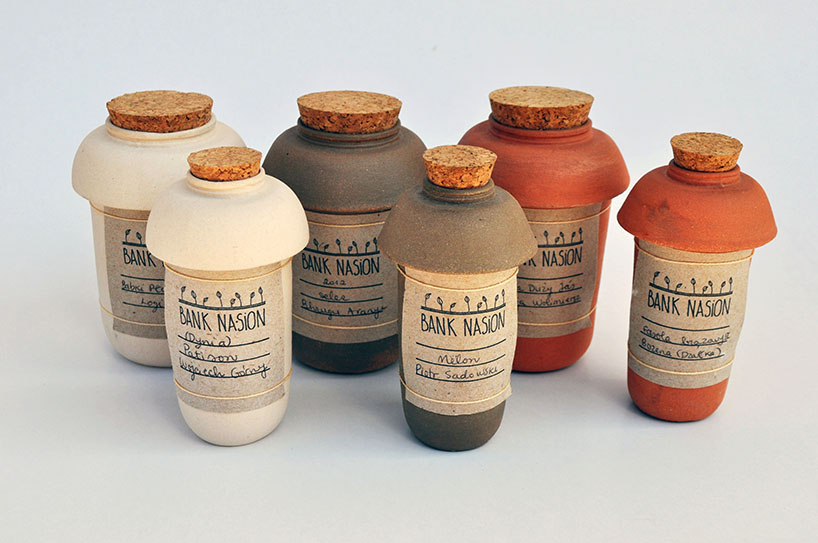
Jars of Seeds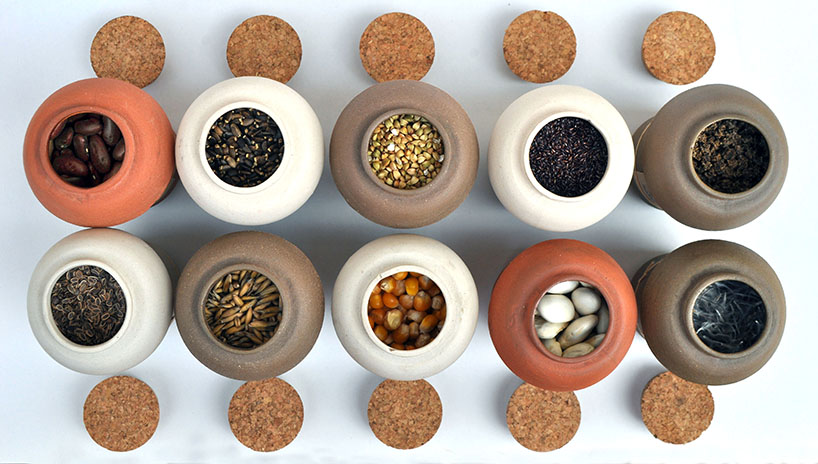
Diversity of Seeds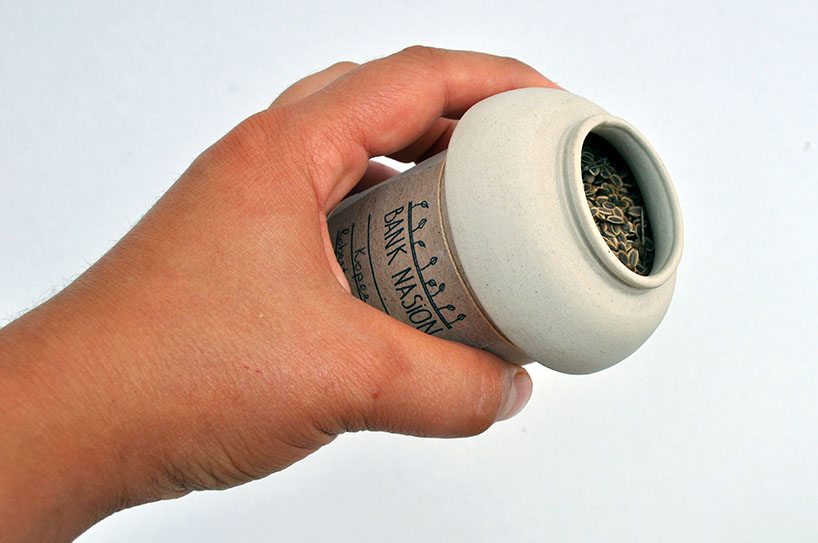
Dill Seeds